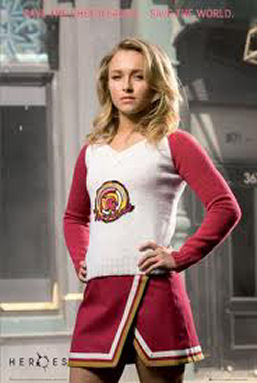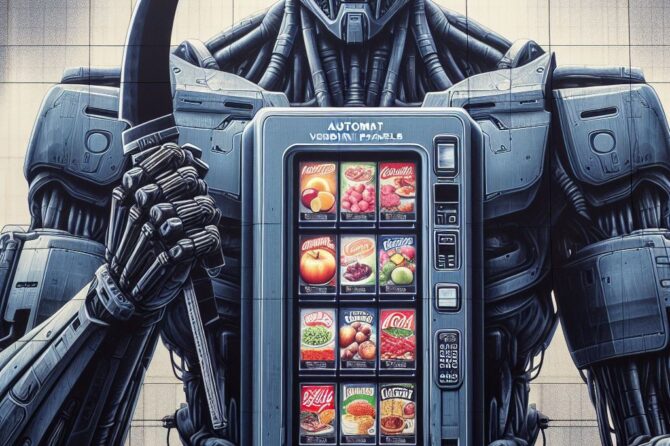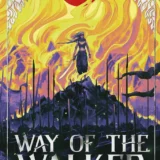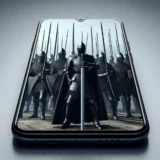
Book Review: Vicious, by V.E. Schwab. I had planned a couple of zine reviews this week, but alas! life intervened, as it has a way of doing, and here I am with a book review. Vicious is V.E. Schwab’s first adult novel, it says here, so I’m assuming she has written at least one YA book. (In case you’re not up with acronyms, YA stands for Young Adult; a reasonably recent genre which includes just about anything that used to be called a kids’ book for teens and a lot more. The most popular (I think—I’m basing my opinion on what I see when I go to the bookstores. What, you don’t have brick & mortar bookstores where you live? I’ll bet you think all books come from chains, like Barnes & Noble in the US, or Coles in Canada. Nope, there are independent bookstores too; you just have to track ‘em down.) kind of YA appears to be genre books, and steampunk is beginning to show as a large part of that genre.
Well, sorry to disappoint you, but this is neither YA nor steampunk. According to the blurb by F. Paul Wilson on the back cover—and the copy I’m reading is an ARC, or Advance Reading Copy, so covers and such are subject to change before publication—says that he couldn’t put it down because Schwab “gathers all the superhero/supervillain tropes and turns them on their sundry heads…”— which is, by the way, kind of misleading. If you pick this up expecting someone on the order of Superman, Batman, Lex Luthor and The Joker, you’ll be both disappointed and maybe a little delighted at what you actually get.
The idea of ordinary (non-costumed) people with extraordinary abilities has been around for years; lately, it’s gotten a lot of TV attention with series like Heroes, Alphas, Misfits, and so on. Although I haven’t personally watched Misfits, I was rather disappointed with Heroes, to the extent that I kind of missed most of the final season. To me, the idea of people getting genetically-based powers with no downside, no price to pay, fell rather short. Look, ordinary people who (for example) excel in sports have to practice for hours; everyone pays some kind of price for their gifts. But in Heroes, those gifts came free, unlike in Alphas, where every gift had a downside. Gary, who could see electromagnetic wavelengths, was a high-functioning autistic; Bill, the guy with superstrength, had a heart condition brought on by overexertion, and so on. Too bad a more realistic approach to super-human powers only lasted two seasons.
V.E. (Victoria) Schwab’s people are called EO, for ExtraOrdinary people; people with something extra. These abilities are not genetic, nor are they the result of spilled chemicals (The Flash), extraterrestrial birth (Superman) or encounters with supernatural forces (The Mask); EOs gain their powers by an unfortunate encounter with mortality.
Let me explain.
Eliot (Eli) Cardale and Victor Vale met at LocklandUniversity, when both were students; both were very smart and had little patience for the run-of-the-mill type of person, so they ended up as roommates. Victor was already a bit bent, because his parents were famous self-help people (if you watch “The Big Bang Theory,” think of Leonard’s mother) who had made him the subject of several books; one thing Victor liked to do was find copies of their books in various libraries (like the school library) and black out everything except words that made up phrases like “no help” and “give up” with a black Sharpie. He immediately, upon meeting Eli, realized that there was something odd—something not quite right—about him. On the surface, he was a popular person, but underneath that, there was something sharp-edged, like broken glass, that occasionally peeped out from under the facade. This fascinated Victor.
During their time at school, Eli unwittingly stole Victor’s girlfriend, Angie from him; worse than that for Victor was that when he was with Angie, Eli was not that sharp-edged person, but someone normal, and a little servile. It was during their mutual thesis time that Eli came up with the idea of creating EOs. His theory was that EOs were created when somebody died—but did not die (rather like the Jaunters in Alfred Bester’s The Stars My Destination, if you have read that book). Putting theory into practice, Eli talked Victor into aiding him with his experiments and, after his NDE (Near-Death Experience) slid over into actual death, he recovered and became an EO.
Spurred by Eli’s experience, and the power he manifested as an EO, Victor decided to try his own experiment and, with Angie’s help, he did the same, but something went wrong, and while manifesting his own EO talent he accidentally killed Angie. Eli, who by this time had decided that EOs were “against nature and God’s plan,” thought Victor had killed Angie on purpose, and turned him in to the police; Victor ends up doing a stint in prison.
So far, not your run-of-the-mill superhero novel, eh? Well, it gets better. Eli changes his name to Eli Ever, because it sounds better, and goes on a rampage to get rid of EOs. Victor does his stint in jail and meets Mitch, who becomes the perfect sidekick. Victor meets Serena, whose talent is making anyone do anything by telling them what to do; Victor meets her sister, Sidney, whose talent is raising the dead. By the way, Victor’s talent is that he can take away anyone’s pain—of any kind—or magnify it to an unbearable level.
The theory Eli came up with in college is that whatever you are thinking when you die—whatever you most desire as you are dying—is related to the power you get. Eli wanted desperately to survive—and he became an instant healer (think the cheerleader, Claire Bennett, in Heroes). Mitch, who is not an EO, is a giant of a man whom people think of as stupid, because he’s large and tattooed, but he’s actually a very smart hacker. These very different people begin a dance that must end with someone’s death, it seems. But whose? The price these people pay for their powers might possibly be—and this is believed by Eli—that they are something less, after they gain their powers, than human. But are they?

Again, I’m not going to provide spoilers. I, like many people, have been taken—since I was a pre-teen—with the idea of gaining super-powers. Would the reality be like this? Would I even try to gain a superpower if I had to die to do so, and would I even be the same person afterward? Would I like the power I got if I had no choice; if my power were the result of what I was thinking while I died? These and other questions made this book quite enjoyable to me. I think you might like it too if you’ve ever speculated about being some kind of hero, superpowered or EO person.
As is my custom, I await your comments, good or bad. Coming up, fanzine reviews, book reviews, movie reviews and so on. Until next time, examine your mind. What kind of EO ability would you have?
Available Sept. 24 from bookstores, or from online retailers in hardcover, Kindle and Audible formats.
- Hardcover: 368 pages
- Publisher: Tor Books; 1 edition (September 24, 2013)
- Language: English
- ISBN-10: 0765335344
- ISBN-13: 978-0765335340
Steve has been an active fan since the 1970s, when he founded the Palouse Empire Science Fiction Association and the more-or-less late MosCon in Pullman, WA and Moscow, ID, though he started reading SF/F in the early-to-mid 1950s, when he was just a sprat. He moved to Canada in 1985 and quickly became involved with Canadian cons, including ConText (’89 and ’81) and VCON. He’s published a couple of books and a number of short stories, and has collaborated with his two-time Aurora-winning wife Lynne Taylor Fahnestalk on a number of art projects. As of this writing he’s the proofreader for R. Graeme Cameron’s Polar Borealis and Polar Starlight publications. He’s been writing for Amazing Stories off and on since the early 1980s. His column can be found on Amazing Stories most Fridays.








Do you think, super hero fiction become the next genre hype ?